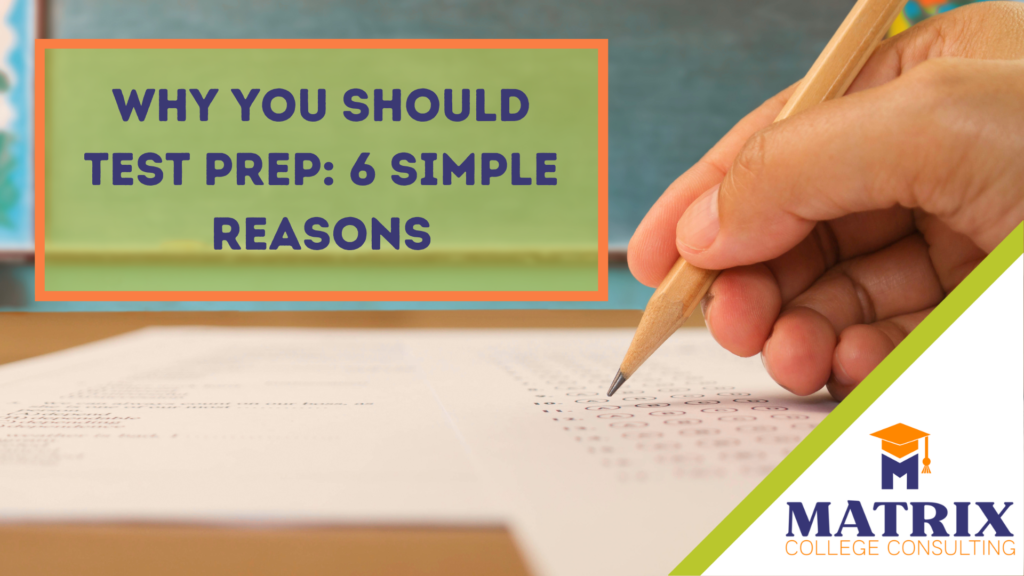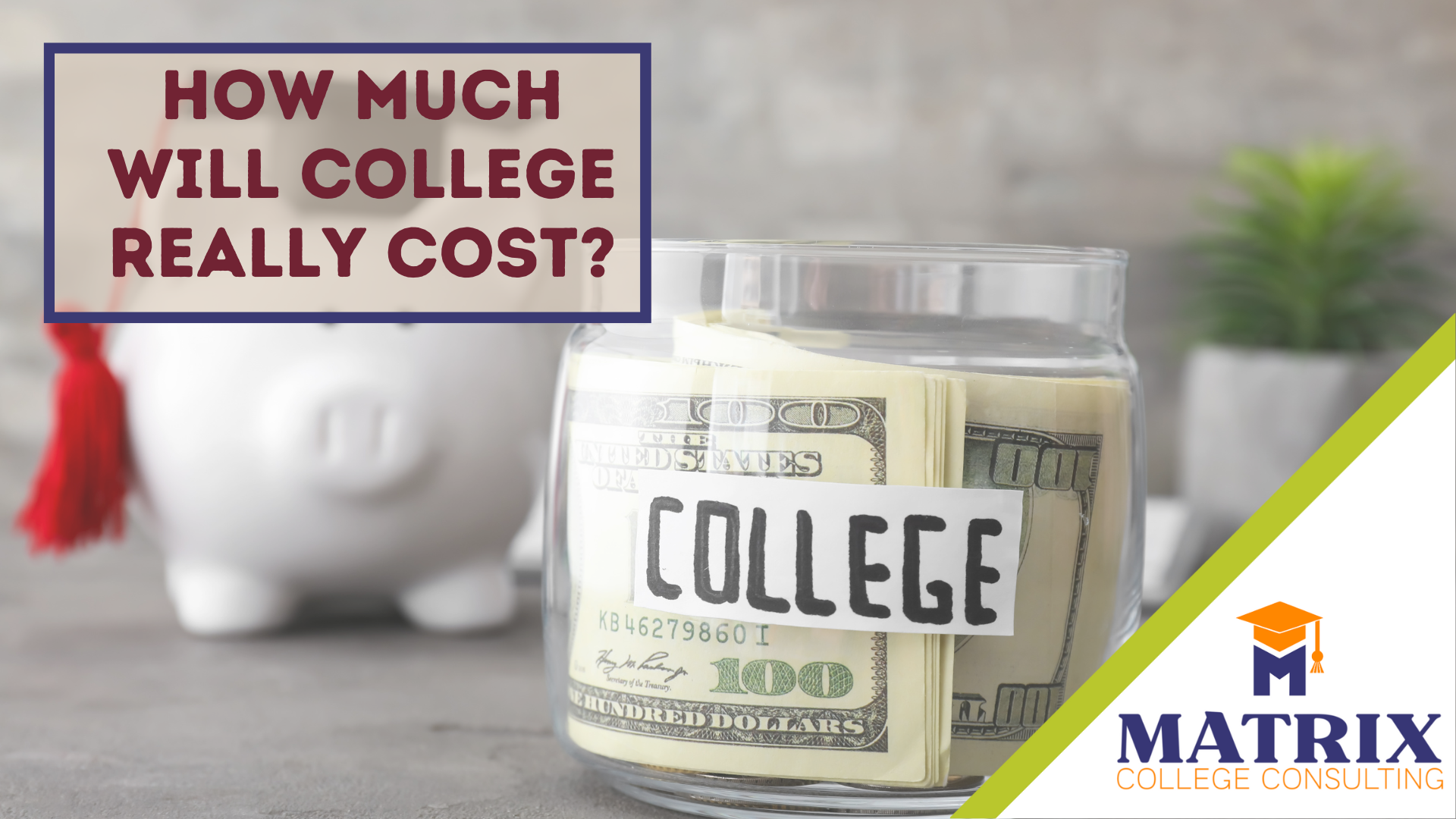Why should students test prep? So many colleges are test optional now, so what’s the big deal? Here are six reasons to do college test prep:
- If you do well on the SAT or ACT, it can benefit you and your overall application. “Test optional” means that you can submit a test score if you would like a college to consider it alongside the other parts of your application (high school transcript, essays, letters of recommendation, activities, honors, etc.). The only schools that will not consider a test score are the ones who are “test blind.” So, unless you are applying only to test blind schools, or you are confident that all the parts of your application already represent your academic strengths well, then you should consider prepping for and taking one of the tests.
- You will become comfortable with the test. Test prep companies, tutors, and publishers think about the test you plan to take all the time. They know all about it: content, length, timing, wording of questions, answer choices. The people or materials you work with will help you learn the content you need. They will also help you strategize, from increasing your efficiency to taking good guesses to eliminating wrong answers quickly.
- You will practice the specific types of questions, with the specific wording, that you will encounter on the test. You know when your teacher gives you a review sheet for a test? This is a good thing! Good practice tests are just like those review sheets. To take advantage of this, be sure you are using retired actual tests. Your study materials should say something like “real ACT tests” or “official SAT content.” If you use questions that a study guide company has created, they won’t be as close to the real questions come test day.
- You will know what sections are easy/hard for you. There are four sections on both the ACT and the SAT. If you take a couple of complete practice tests, you will know what to expect. For example, the reading section of the ACT always has four passages in the same order: literary narrative, social science, humanities, and natural science. If you practice this section a couple of times and discover that the social science passage is always the easiest for you, why not do that section first? As you practice, think about ways to maximize your strengths.
- You will understand the content that is tested. As you are taking practice tests, note any content you might want to refresh. Unsure about photosynthesis? That topic might show up in a question on your ACT science test, so be sure to look that over until you remember it better. Same goes for the math sections. You need to be able to remember quite a bit of geometry on both the ACT and the SAT. (Note: The SAT has a small reference sheet with certain formulas. The ACT provides no formulas.) So, if it’s been a while since you’ve worked with circles and arc length, or if you haven’t learned the basics of right triangle trigonometry, learn or relearn those content areas now.
- You will get a feel for the timing of each section. Feeling pressed for time on some of the sections? Or not finishing the questions in a certain section before time runs out? As you complete each timed practice section, you will come to know what to expect for you on that section. Sometimes it’s better to take your time, answer questions correctly, and not finish, rather than rushing through the problems and getting a bunch of them wrong. Practicing by simulating what the actual test day will feel like will allow you to analyze what works best for you, and then create a custom testing strategy you can implement on test day.
Test prep can be a great way to feel confident walking into your SAT or ACT testing center. If you’re prepared and confident, you just might get the score you want! Interested in learning more? Let’s chat!





